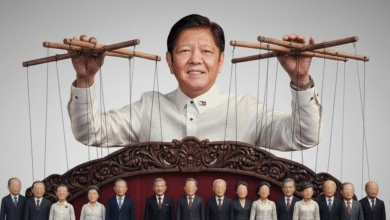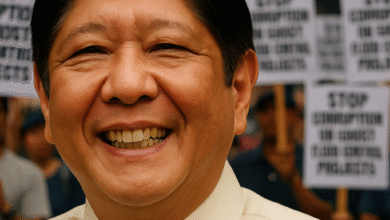
Oligarch Shuffle: Will More ‘PBBM-Friendly’ Old Boys Take Over PrimeWater Districts?
There is a major update in the PrimeWater fiasco. It is rumored that some “old boys” with warmer ties to Malacanang are interested in acquiring local water districts currently under the Villar Group’s water business.
In a Philippine Star column, writer Iris Gonzales named “others in the water business, including the Razon and MVP groups” who may have this interest. Aboitiz is another.
All three are already embedded across key public utilities. Razon controls port operations and water through Manila Water; MVP dominates telecoms, power, tollways, and also water distribution. Aboitiz, through Aboitiz InfraCapital, is rapidly expanding its water footprint—from bulk water projects like Apo Agua in Davao, to privatized wastewater services in Batangas and new bids in Iloilo and Tarlac.
While some may celebrate the news, this casts a shadow over what may happen to the country’s water woes. The deeper problem isn’t just who owns the pipes. It’s the system that treats water as a tradable asset, not a public right.
READ: Where did the billions for flood control projects go?
Oligarch Shuffle
What’s unfolding is an oligarch shuffle—the quiet rotation of essential infrastructure assets within elite circles, rebranded as reform. Replacing the Villar brand with Razon, Pangilinan (MVP), or Aboitiz doesn’t break monopolies—it reshuffles them.
Different faces, same structure:
- Profit-first orientation
- Weak, captured regulators
- Deals brokered behind closed doors
- Minimal public accountability
These dynamics won’t disappear if PrimeWater districts change hands. In fact, swapping one oligarch for another often guarantees an extended “transition phase”—likely stretching beyond the Marcos Jr. term. That could mean even more years of unreliable service, at higher consumer cost, all under the guise of reform.
The False Promise of “Better” Oligarchs
The new wave of corporate oligarchs often markets itself as “modern”: boasting ESG pledges, foreign partnerships, and sleek branding. But the outcomes tell a different story.
Under Manila Water (Ayala-MVP), customers faced tariff hikes, profit guarantees baked into contracts, and limited transparency on infrastructure spending. These firms may be more corporate—but they are not less extractive. They are simply better at appearing ethical while maintaining monopoly power.
The danger isn’t just bad service—it’s public complacency. The illusion of “upgrading” oligarchs distracts the public from demanding systemic change.
The Real Reform: Democratic, Public Water
What’s needed is not a better oligarch, but a better model.
- Strengthen local water districts with public funding, skilled staffing, and independence from political interference.
- Reform water contracts to break up monopolies and enforce clear service benchmarks.
- Establish citizen oversight councils to audit costs, billing, and water quality.
- Explore remunicipalization, as cities like Paris and Jakarta have done—proving that public models can outperform private ones when democratic controls are real.
Reject the Oligarch Shuffle
What we need is not new owners, but new rules. Water must be governed as a right, not a revenue stream. Handing the Villar water empire to Razon, MVP, or Aboitiz is not reform—it’s reward. It tells the business elite that under Marcos Jr., market access flows through political alignment. This isn’t vengeance—it’s consolidation: pruning rivals, empowering loyalists, and securing political capital before 2028.
The cost? A public still trapped in elite-run utilities, still overpaying for basic needs, still excluded from decision-making. Reform must be transformational, not transactional. Because in the end, it’s not just water that gets traded—it’s the future of democratic control. The taps won’t run clean until the system does.




